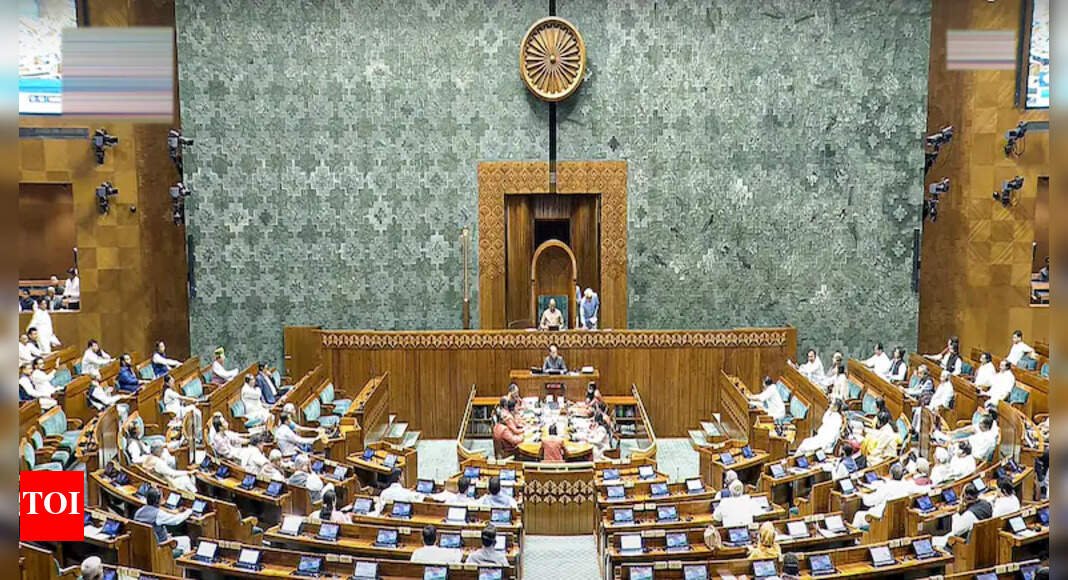Contents
President Droupadi Murmu Assents to Waqf (Amendment) Bill, 2025: A Historic Move for Transparency
President Droupadi Murmu has officially sanctioned the Waqf (Amendment) Bill, 2025, a legislative step aimed at enhancing transparency in the management of waqf properties across India. This landmark decision follows extensive debates in Parliament and ushers in significant reforms in managing minority welfare.
Lead: In a pivotal moment for minority governance in India, President Droupadi Murmu has given her consent to the Waqf (Amendment) Bill, 2025. This legislation, which aims to revamp the administration of waqf properties, was recently passed by both houses of Parliament amid fierce debates. After the Rajya Sabha approved the bill with 128 votes in favor and 95 opposing, the decision signifies a commitment to improving transparency and safeguarding the interests of marginalized communities, particularly among the Muslim population.
What is the Waqf (Amendment) Bill, 2025?
The Waqf (Amendment) Bill, 2025 focuses on essential reforms relating to the governance of waqf properties. The legislation introduces measures that aim to:
– **Enhance Transparency**: The bill mandates clearer accountability mechanisms within the waqf boards.
– **Representation from Diverse Muslim Sects**: It ensures that different Muslim sects are adequately represented in waqf boards, promoting inclusivity.
– **Protect Heritage Sites and Welfare**: Provisions are included to safeguard heritage sites while also addressing social welfare to uplift marginalized groups, specifically Muslim widows and divorcees.
Key Features of the Waqf (Amendment) Bill
– **Revamped Governance Structure**: The bill proposes a reformation in the composition of the Central Waqf Council, which will now include 22 members, ensuring a secular yet representative makeup with no more than four non-Muslims.
– **Increased Support for Marginalized Communities**: The Bill aims to bolster economic inclusion for disadvantaged groups, reflecting the government’s commitment to support the socio-economic development of poor Muslims.
– **Streamlined Management under UMEED Initiative**: Aligning with the Unified Waqf Management Empowerment, Efficiency, and Development (UMEED) initiative, the legislation seeks to modernize the management of waqf properties.
Government and Opposition Reactions
The passage of the Waqf (Amendment) Bill has prompted varied reactions across the political spectrum.
– **Support from the Government**: Prime Minister Narendra Modi praised the bill as a “watershed moment” for reforms in the waqf system, emphasizing the legislation’s role in improving transparency. He stated, “This legislation will boost transparency and safeguard people’s rights.”
– **Statements from Minority Affairs Minister**: Kiren Rijiju, the minister responsible for introducing the bill, asserted that the legislation is poised to benefit millions and underscores that it is developed after extensive consultations with stakeholders.
– **Criticism from Opposition Parties**:
– Congress MP Dr. Syed Naseer Hussain labeled the bill as misleading and accused the government of pushing a divisive agenda, claiming it was designed for communal polarization.
– DMK’s Tiruchi Siva described the bill as anti-secular, while TMC’s Mohammad Nadimul Haque argued that it infringes upon fundamental rights.
– AAP’s Sanjay Singh called for the bill’s withdrawal, asserting it represents a dangerous precedent.
Counterarguments from Government Officials
In response to opposition claims, Union Home Minister Amit Shah claimed the assertions are misguiding the public. He noted the positive intent behind the bill, while BJP President JP Nadda underscored its alignment with modern property administration under the UMEED initiative.
Former PM HD Devegowda of JD(S) expressed support, highlighting that waqf properties have historically been mismanaged, often benefiting elites rather than the intended poor communities.
The Repeal of Outdated Legislation
In conjunction with the Waqf (Amendment) Bill, Parliament also passed the Mussalman Wakf (Repeal) Bill, 2025, which eliminates the Mussalman Wakf Act of 1923, thereby removing outdated legal provisions that no longer serve contemporary needs.
Potential Impact and Future Implications
As the new law comes into effect, political discourse continues regarding its long-term outcomes. Proponents argue that the reforms will empower marginalized communities by ensuring their voices are heard in waqf management. Conversely, critics warn that it could centralize control over waqf properties and potentially erode the autonomy of minority groups.
Conclusion
The assent to the Waqf (Amendment) Bill, 2025 represents a critical juncture in India’s legislative landscape, particularly concerning minority rights and property governance. As the government pushes for enhanced transparency and accountability within waqf management, the effectiveness of these reforms will largely depend on their implementation and reception among the communities they aim to serve. The ongoing political debate exemplifies the complexities inherent in balancing governance with community needs, emphasizing the need for continued dialogue and engagement among all stakeholders.
Keywords: Waqf Bill, Droupadi Murmu, Waqf (Amendment) Bill 2025, Transparency, Governance, Minority Rights, UMEED, Muslim Welfare, Heritage Protection, Parliament, Political Reactions, India.
Hashtags: #WaqfBill2025 #DroupadiMurmu #MinorityRights #Transparency #IndiaLegislation #MuslimWelfare #PoliticalDebate
Source link




